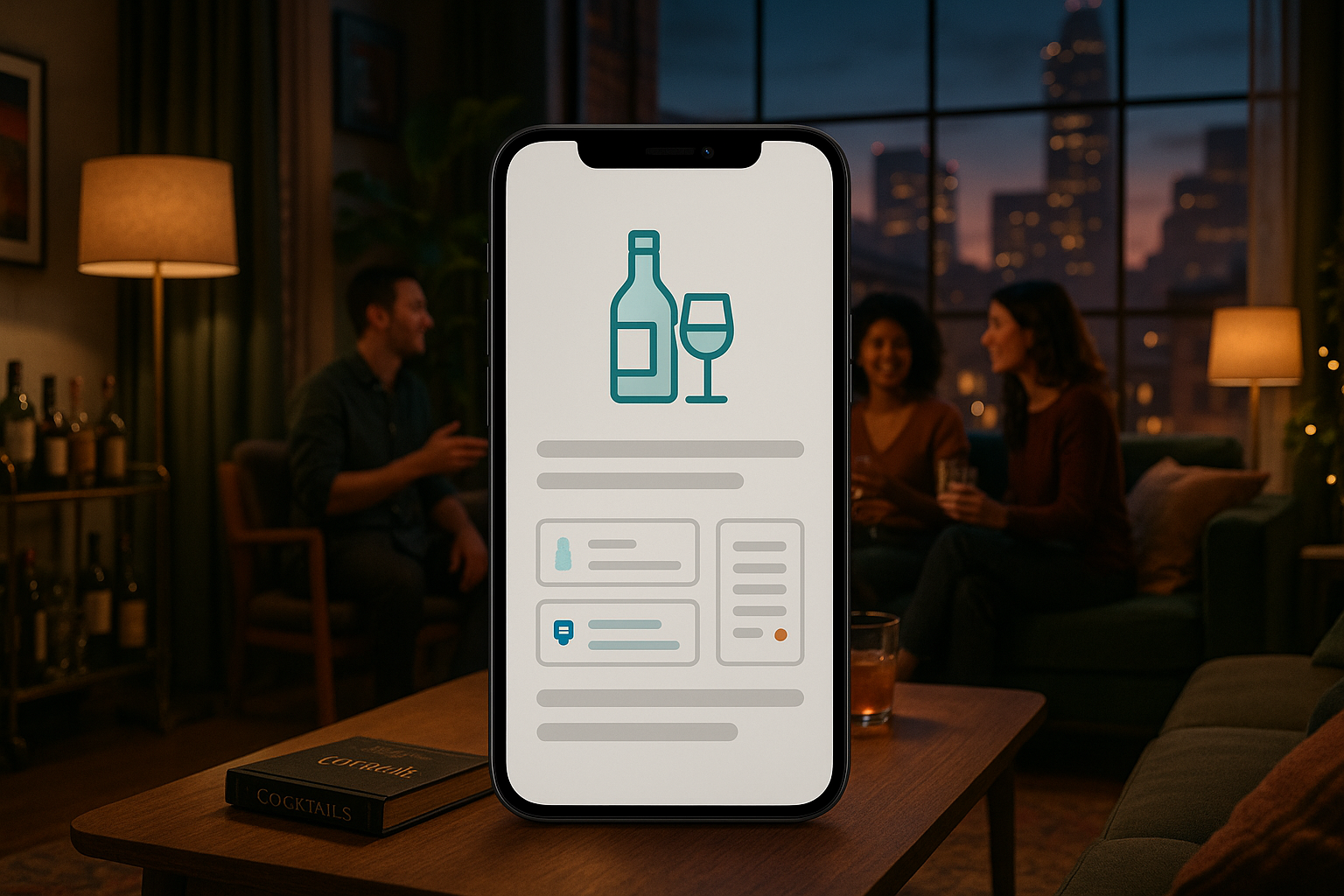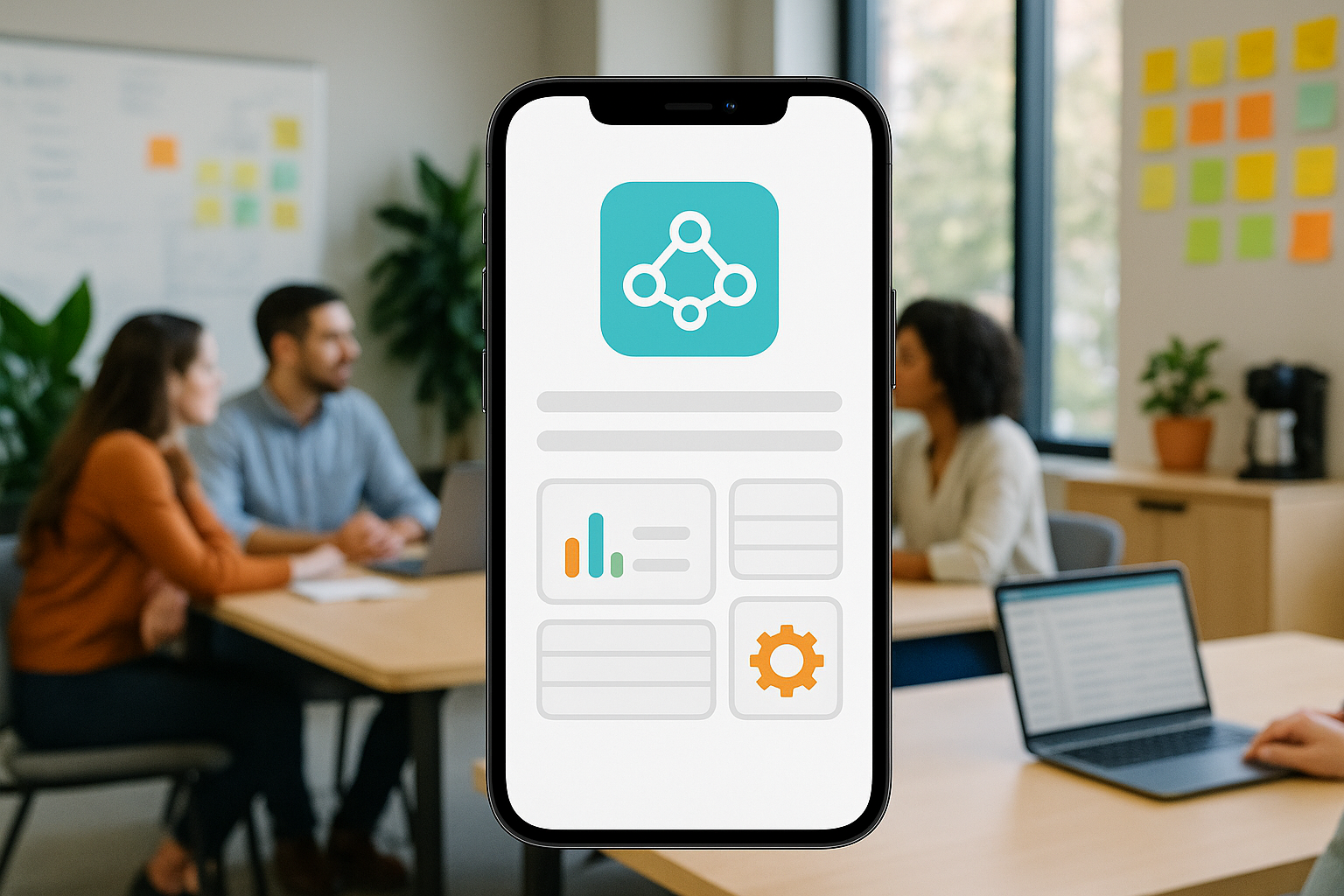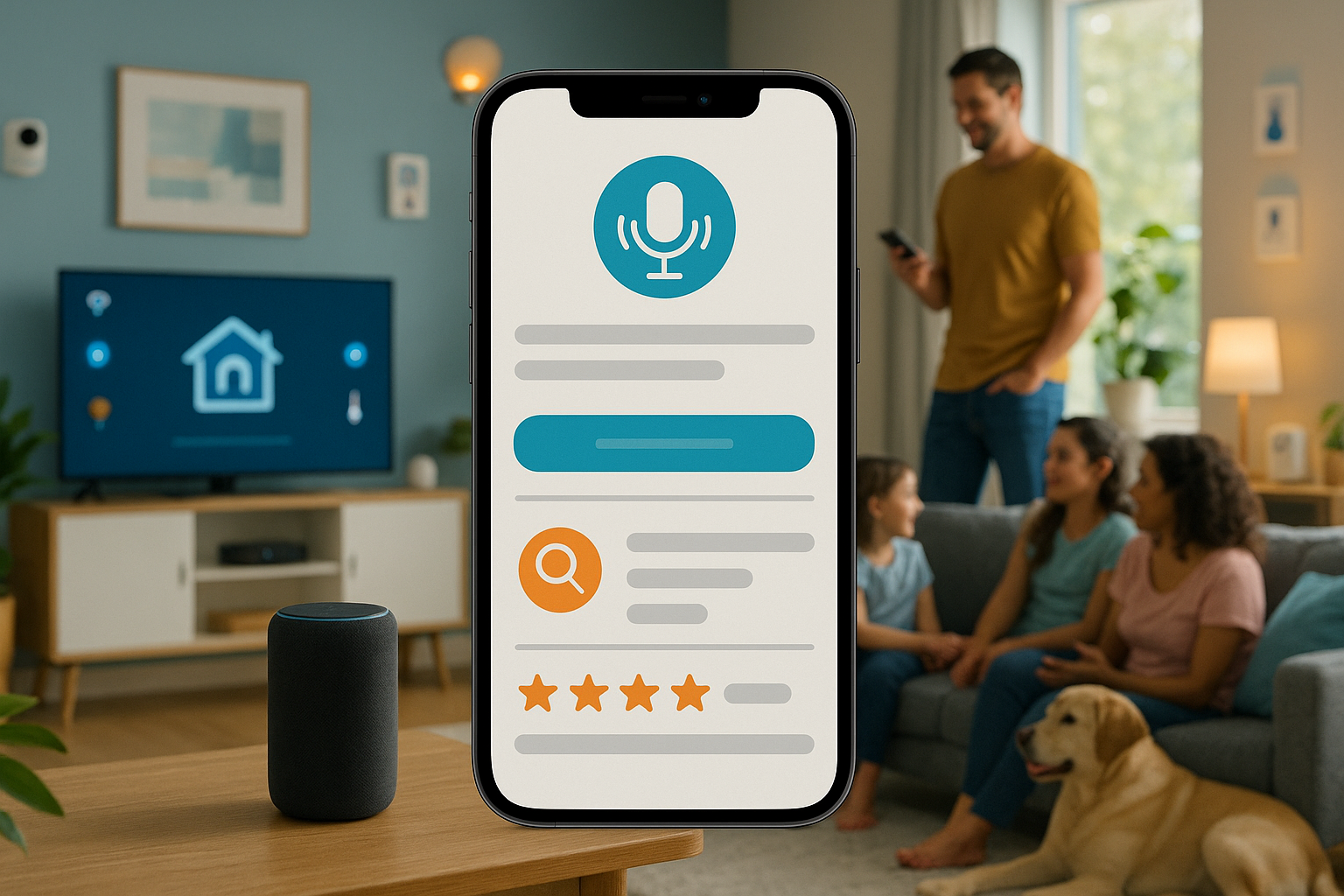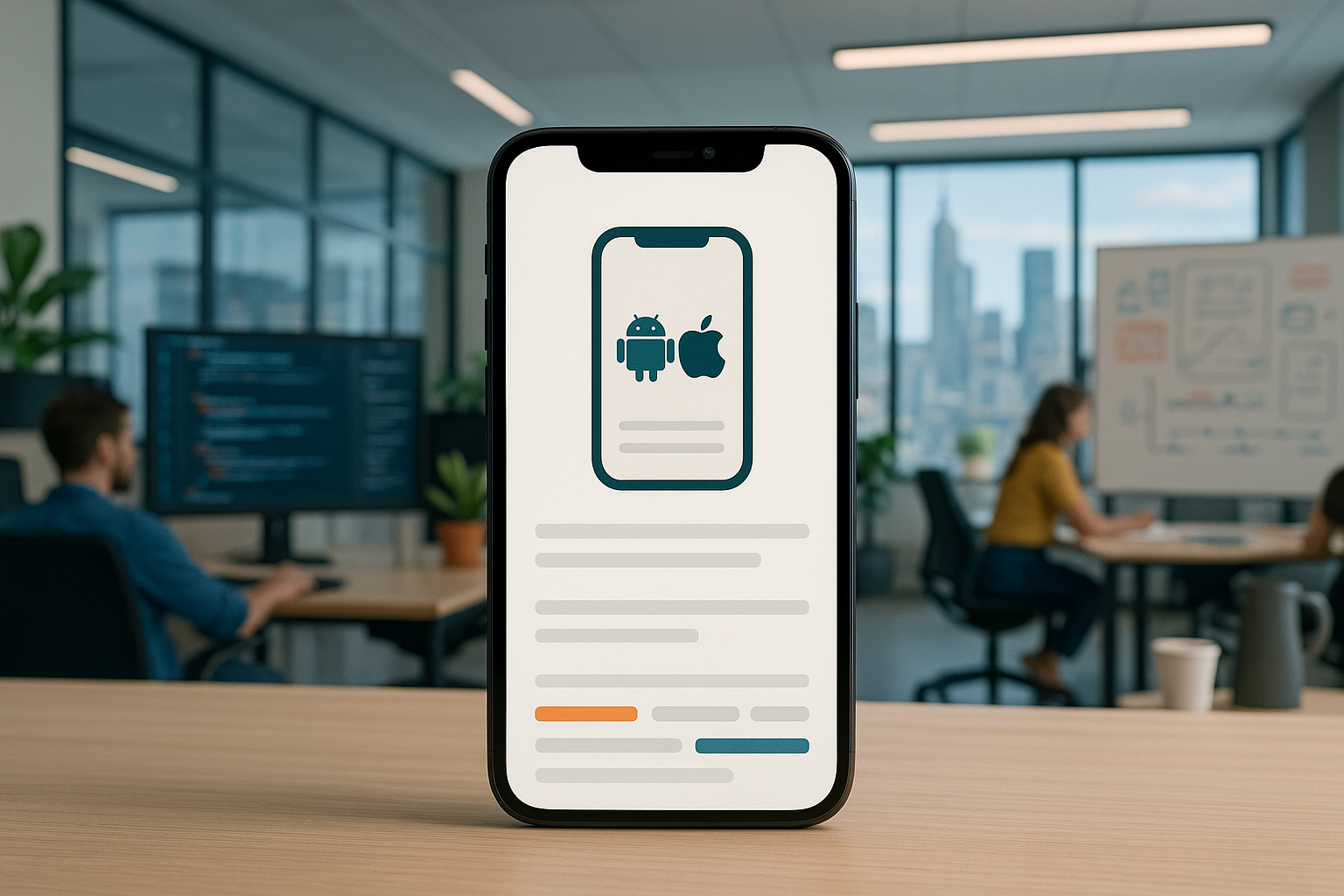Introduction
The convenience of on-demand services has reshaped consumer expectations across every industry, and the alcohol market is no exception. Launching an alcohol delivery app seems like a lucrative venture, tapping into a market eager for convenience. However, the path from concept to a functional, compliant, and profitable app is fraught with unique and significant challenges. From a labyrinth of legal regulations that vary by state and municipality to the logistical complexities of age verification and delivery, developing an alcohol delivery app in-house can quickly become an overwhelming and costly endeavor.
This article serves as a comprehensive guide to alcohol delivery app development. We will explore what these apps are, dissect the formidable reasons why building one is so difficult, examine different business models, and provide a detailed breakdown of potential development costs. Furthermore, we will introduce you to the leading development companies that can turn your vision into a reality.
At MetaCTO, we are a top-tier, US-based AI-powered mobile app development firm with over two decades of experience. We specialize in transforming complex ideas into market-ready applications. We understand the intricate web of challenges specific to the alcohol delivery industry and have the expertise to navigate them successfully. This guide will not only inform you but also show you how partnering with an expert firm like ours is the most effective path to launching a successful alcohol delivery app.
What is an Alcohol Delivery App?
At its core, an alcohol delivery app is a mobile application that allows users to browse a selection of alcoholic beverages—beer, wine, and spirits—and order them for delivery to their doorstep. It functions as a digital marketplace, bringing the convenience of e-commerce to a traditionally brick-and-mortar industry.
However, the operational model behind the user-facing interface can vary. The most common and legally streamlined approach is the intermediary model, famously employed by platforms like Drizly. In this model, the app itself does not function as a licensed retailer. It does not own any alcoholic products, maintain an inventory, or operate a delivery fleet.
Instead, the app acts as a sophisticated technology intermediary. Here’s how it works:
- A customer places an order through the app.
- The app’s platform intelligently directs that order to a local, licensed partner liquor store.
- The partner store is responsible for receiving the order, packing the items from its own inventory, and fulfilling the delivery using its own personnel.
This business model effectively outsources the most regulated aspects of the alcohol business—the sale and delivery—to entities that are already licensed and compliant. The app’s primary role becomes that of a facilitator, providing the digital infrastructure, marketing reach, and user experience that connect consumers with local sellers. This separation of concerns is crucial for navigating the complex legal landscape of alcohol sales in the United States.
Reasons It Is Difficult to Develop an Alcohol Delivery App In-House
While the concept of an on-demand delivery app might seem straightforward, the “alcohol” component introduces layers of complexity that make in-house development a perilous journey for those without specialized experience. These challenges span legal, technical, logistical, and business domains.
The Labyrinth of Legal and Regulatory Hurdles
Dealing with regulations is unequivocally the most challenging aspect of operating in the alcohol delivery industry in the United States. Unlike other e-commerce sectors, alcohol sales are governed by a dense, multi-layered legal framework.
- Federal, State, and Local Laws: An alcohol delivery app must comply with a trifecta of laws. Federal laws set the baseline, but the real complexity lies at the state and local levels. The 21st Amendment gives states primary authority to regulate alcohol, leading to a patchwork of wildly different rules across the country.
- State-by-State Variation: There is no national standard. Alcohol delivery regulations differ immensely from one state to the next. Some states may permit it, others may have strict restrictions on who can deliver and when, and some may prohibit it entirely.
- Licensing and Permits: Simply building an app isn’t enough. Acquiring the essential licenses and permits to operate legally is a time-consuming and energy-draining process. This often requires deep legal consultation to understand the specific requirements for every single area of operation.
- Excessive Taxation: Beyond the legal red tape, excessive taxation on alcohol products can apply significant financial pressure, potentially killing a developing business model before it even gets off the ground.
Navigating this requires more than just developers; it requires legal experts who specialize in alcohol beverage control (ABC) laws, a cost and resource that most in-house teams are not equipped for.
The Critical Challenge of Age Verification
The sale of alcoholic beverages to minors is a major concern and a legal landmine. In an online transaction, the traditional method of a cashier checking a physical ID is absent, creating a significant challenge.
- Remote Verification: How do you reliably verify a customer’s age when you cannot see them? This is a core problem that must be solved with technology.
- Robust Mechanisms: To ensure compliance, an app must integrate robust age verification mechanisms. This can include:
- ID Scanning: Requiring users to scan their driver’s license or other government-issued ID.
- Age Verification APIs: Using third-party services that check a customer’s information against public or private databases.
- Manual Checks: Implementing a strict protocol for delivery personnel to manually verify the recipient’s ID upon delivery.
A failure in this system doesn’t just result in a bad user experience; it can lead to severe legal penalties, including fines and the revocation of licenses.
Complex Delivery Logistics
An alcohol delivery app is, at its heart, a logistics platform. Handling the on-demand delivery of a regulated product requires a sophisticated and reliable system.
- Mapping and Routing: The app needs seamless integration with mapping and GPS systems like Google Maps or Mapbox to pinpoint customer locations and guide drivers.
- Route Optimization: To ensure profitability and speed, routes must be optimized. This involves complex algorithms that can account for traffic, delivery density, and driver availability.
- Real-Time Tracking: Modern consumers expect to track their orders in real-time. This requires technology that provides live updates from the delivery driver to the customer’s app, which adds another layer of technical complexity.
- Zoning: Effectively assigning orders to specific stores or drivers requires defining and managing delivery zones, which must be dynamically updated as new partners are onboarded.
Technical and Security Imperatives
Beyond the industry-specific challenges, building a high-quality app requires deep technical expertise.
- User Experience (UX) and Design: The digital experience, from the app’s design to its branding, is a significant challenge. A clunky, unreliable, or unattractive app will fail to attract and retain users.
- Robust Security: The app will handle sensitive customer data, including personal information and payment details. It is imperative to implement robust security measures to protect this data and build trust. This includes:
- SSL Encryption: To secure data in transit.
- Tokenization: To protect payment information by replacing it with a non-sensitive token.
- Secure Payment Gateways: Integrating with trusted and compliant payment processors.
Building an app that is not only functional but also secure, scalable, and enjoyable to use requires a seasoned development team. Partnering with a firm like MetaCTO ensures that these foundational technical aspects are handled expertly, allowing you to focus on the business. Our mobile app development services are designed to tackle these challenges head-on.
Different Types of Alcohol Delivery App Business Models
While the end goal is the same—getting alcohol to a customer—the business model an app employs can differ significantly. The structure you choose will have profound implications for your legal obligations, operational complexity, and path to profitability.
The Intermediary Model
As discussed earlier, this is the most common and often the most legally defensible model in the U.S. market. Drizly pioneered this approach, and it remains the standard for many new entrants.
- Core Concept: The app serves as a tech intermediary, connecting customers with existing, licensed local liquor stores.
- Operations: The app itself does not hold inventory or employ delivery drivers. When a customer places an order, the platform routes it to a nearby partner store. The store’s staff then picks the items from their own shelves and uses their own delivery personnel to fulfill the order.
- Advantages: This model significantly reduces legal risk and operational overhead. The app company avoids the need for retail and delivery licenses, as those responsibilities remain with the partner stores who are already compliant. The business can focus on what it does best: building technology, marketing, and expanding its network of users and partners.
- Revenue: Monetization typically comes from charging the partner stores a monthly subscription fee or a commission on each order processed through the platform.
The Direct-to-Consumer (Owned Inventory) Model
A more operationally intensive model is one where the company owns the entire value chain, similar to the model used by GoPuff for general convenience items.
- Core Concept: The company operates its own licensed warehouses or “micro-fulfillment centers,” holds its own inventory of alcohol, and employs its own delivery drivers.
- Operations: When a customer places an order, it is fulfilled directly from one of the company’s own facilities and delivered by its own team. This gives the company complete control over the customer experience, from product selection and pricing to delivery speed.
- Challenges: This model carries a much higher burden. The company must secure all necessary retail licenses for each fulfillment center, manage a complex supply chain, purchase and store inventory, and hire and manage a fleet of delivery drivers. The legal and logistical overhead is immense and varies in every new market it enters.
- Advantages: The primary advantage is control. The company can curate its product selection, control pricing, and guarantee a consistent delivery experience. It also captures a larger portion of the revenue from each sale, as it isn’t just taking a commission.
Choosing the right model depends on your capital, risk tolerance, and long-term goals. The intermediary model offers a faster, more scalable, and less capital-intensive path to market, while the direct-to-consumer model offers greater control and potentially higher margins at the cost of massive complexity.
Cost Estimate for Developing an Alcohol Delivery App
The cost of developing an alcohol delivery app is not a single number but a wide range influenced by numerous factors. These include the complexity of features, the location and size of the development team, and the level of UI/UX polish. Based on industry data, we can provide some reliable estimates.
The predicted cost for a custom alcohol delivery app typically ranges from $40,000 to $300,000 or more. This large range can be broken down by the complexity of the application.
| App Complexity | Approximate Cost Range |
|---|---|
| Basic | $40,000 - $75,000 |
| Intermediate | $85,000 - $130,000 |
| Complex | $145,000 - $300,000 |
A Basic app would include essential features like user registration, product listings, a shopping cart, and simple payment integration. An Intermediate app might add features like real-time tracking, advanced search and filtering, and promotional codes. A Complex app would involve all of the above, plus sophisticated features like AI-powered recommendations, multi-store inventory management, route optimization algorithms, and extensive third-party integrations.
Cost by Development Stage
The total cost can also be understood by looking at the cost associated with each stage of the development lifecycle for an app similar to GoPuff.
| Development Stage | Estimated Cost |
|---|---|
| Market Research | $5,000 - $10,000 |
| UI/UX Design | $15,000 - $35,000 |
| App Development (Coding) | $38,000 - $155,000 |
| Testing & Quality Assurance | $7,000 - $10,000 |
| Launch & Deployment | $5,000 - $8,000 |
| Maintenance & Updates | $3,000 - $15,000 per month |
Developer Rates by Region
The location of your development team is one of the most significant cost drivers. The hourly rates for developers vary dramatically around the world.
| Region | Estimated Hourly Rate |
|---|---|
| USA | $85 - $100 |
| Western Europe | $80 - $95 |
| Australia | $75 - $90 |
| UAE | $60 - $70 |
| Eastern Europe | $50 - $65 |
| Asia | $25 - $45 |
While hiring developers from a region with lower hourly rates can seem cost-effective, it’s crucial to consider potential challenges with communication, time zones, and quality control. Working with a U.S.-based firm like MetaCTO ensures seamless communication, top-tier talent, and a team that understands the nuances of the domestic market and its regulations.
Top Alcohol Delivery App Development Companies
Choosing the right development partner is the single most important decision you will make. You need a team with the technical prowess, industry knowledge, and strategic vision to navigate this complex space.
1. MetaCTO
As a premier US-based AI and mobile app development agency, we at MetaCTO are uniquely positioned to build, launch, and scale your alcohol delivery app. With 20 years of experience and over 120 successful projects, we offer more than just code; we provide a strategic partnership dedicated to your success.
Why MetaCTO is the ideal partner:
- Deep Technical Expertise: We handle every step of the process, from initial strategy and design to building, launching, and evolving your app. We specialize in creating robust, scalable applications that deliver a seamless user experience. Our expertise in AI development can be leveraged to create intelligent route optimization, personalized recommendations, and automated compliance checks.
- Strategic Approach: We don’t just build what you ask for; we work with you as fractional CTOs to build a technology and AI roadmap designed to increase profit and valuation. Our process begins with validating your idea, often through a Rapid MVP Development to test the market, gather feedback, and secure funding quickly and efficiently.
- Navigating Complexity: We understand that integrating features for a regulated industry like alcohol delivery is difficult. Our team has the experience to implement the critical components correctly: robust age verification systems, secure and compliant payment gateways, and sophisticated logistics integrations. We turn technical challenges into a clear path forward.
- Focus on Growth and Monetization: Our job isn’t done at launch. We help you grow your user base and keep them engaged through A/B testing and analytics. We also work with you to implement the most effective monetization strategies, whether it’s through commissions, subscription fees, or in-app advertising.
2. AppsRhino
AppsRhino is a leading development company that specializes in on-demand delivery apps, including for alcohol. They offer both custom-built solutions and ready-to-launch, white-label apps that can be rebranded and customized.
- Key Offerings: AppsRhino has proven methods for building feature-rich apps and combines deep industry knowledge with tech innovation. They focus on scalability, using a microservices architecture to ensure seamless integrations and efficient operations.
- Compliance and Security: They prioritize compliance by incorporating robust age verification systems and ensuring adherence to regional and national distribution regulations. They also implement PCI DSS-compliant payment systems for secure transactions.
- Flexibility: AppsRhino supports multiple revenue models and offers various development options, including native (Swift, Java) and hybrid (React Native) apps. They also provide flexible payment models, including one-time cost, monthly subscriptions (SaaS), and the ability to hire dedicated developers.
3. Relinns Technologies
Described as a top mobile app development company, Relinns Technologies is noted for its creativity in design and its organized, consistent approach to development. They have direct experience in the alcohol delivery space, having helped build the Drinkyfy app.
- Proven Track Record: Their work on Drinkyfy, an on-demand liquor delivery platform, demonstrates their capability in this specific niche.
- Strengths: Their reputation is built on delivering well-designed and structured applications, which is critical for user adoption and retention in a competitive market.
Conclusion
Developing an alcohol delivery app is a highly ambitious but potentially rewarding venture. As we’ve detailed, the journey is filled with significant hurdles, from the daunting legal landscape and critical need for age verification to complex logistics and high technical standards. The sheer number of challenges makes in-house development a risky proposition for all but the most well-equipped enterprises.
This guide has walked you through the core components of this industry: the intermediary and direct-to-consumer business models, the substantial but variable costs of development, and the importance of a skilled development partner. The key to success lies not just in a great idea, but in flawless execution and a deep understanding of the regulatory environment.
Choosing the right partner is paramount. You need a team that can provide not only the technical skills to build a secure, scalable, and user-friendly app but also the strategic guidance to navigate the business challenges. At MetaCTO, we bring two decades of experience in launching successful mobile apps, specializing in turning complex challenges into market-leading products. We are more than developers; we are your partners in building a sustainable and profitable business.
Ready to navigate the complexities of alcohol delivery app development? Talk to an expert at MetaCTO today to discuss how we can build a compliant, scalable, and profitable app for your business.






